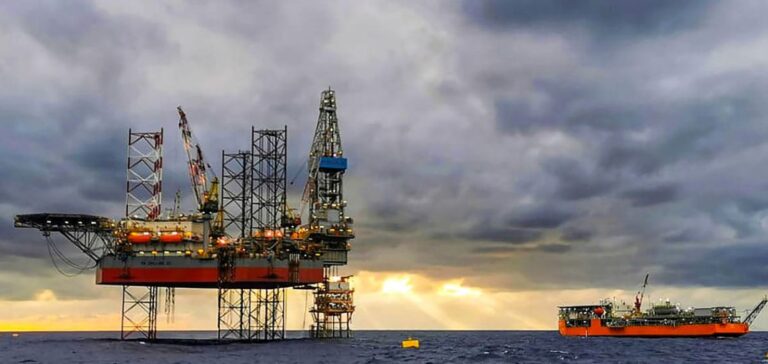Auctions of pre-salt oil blocks in Brazil have fetched 916 million reais (nearly $173 million), with several foreign groups among the buyers, including Total, Shell and BP.
Only four of the eleven blocks offered found takers, but the total amount corresponds to almost three quarters of the 1.28 billion reais expected.
According to the National Petroleum Agency (ANP), beyond the price paid for the concessions, these auctions “guarantee at least 1.44 billion reais ($270 million) of investment” in the sector in Brazil.
The final price of the concessions had already been set in advance.
The difference was established with the percentage of profit sharing that the company is committed to pay to the Brazilian state.
More than half of the total amount of Friday’s auction came from the concession of the Norte de Brava block to the Brazilian state-owned company Petrobras, for 511 million reais (nearly $97 million), with a profit-sharing percentage nearly three times higher than the minimum set by the ANP.
Petrobras also won another block, in consortium with Shell, that of Sudoeste de Sagitario, for 330 million reais ($63 million).
The Brazilian company also exercised its preferential right to join the winning consortium for the Agua Marinha block, awarded to TotalEnergies, Petronas and QatarEnergy for 65 million reais ($12 million).
BP was the sole winner of the Bumerangue project, for 8.86 million reais ($1.7 million).
A year ago, the auction of two high-potential blocks alone raised nearly $2 billion.






















